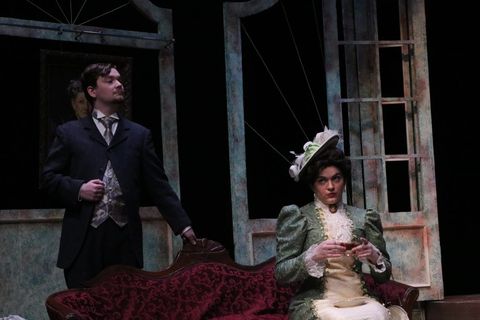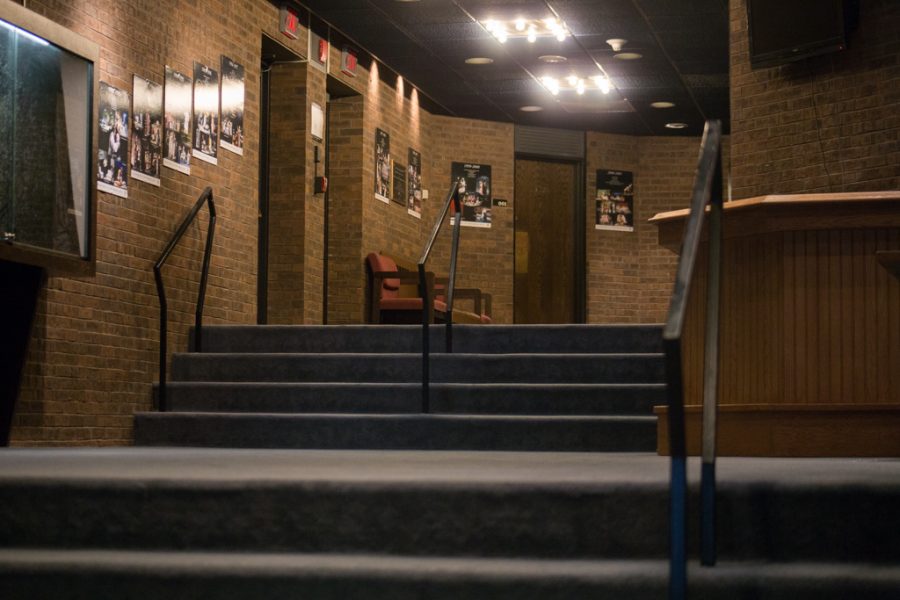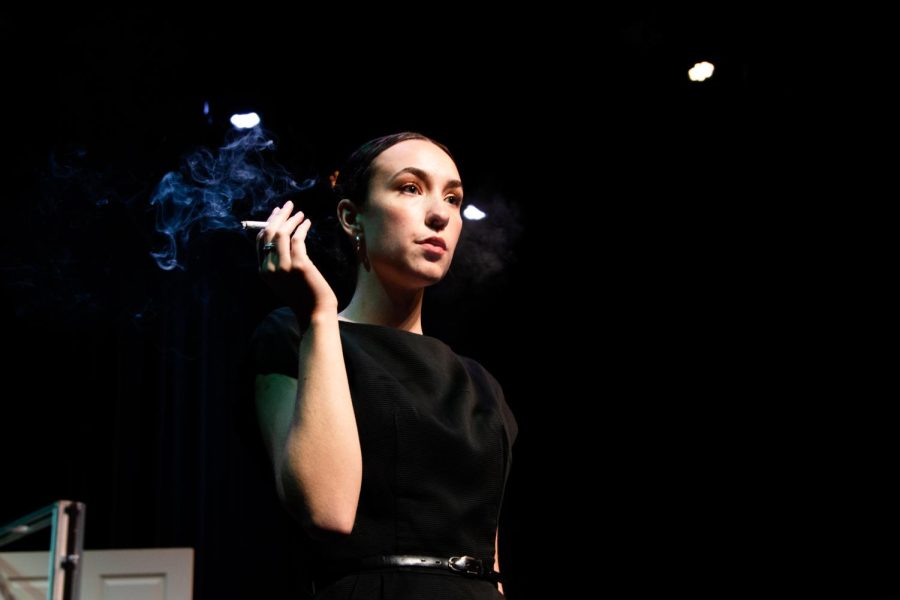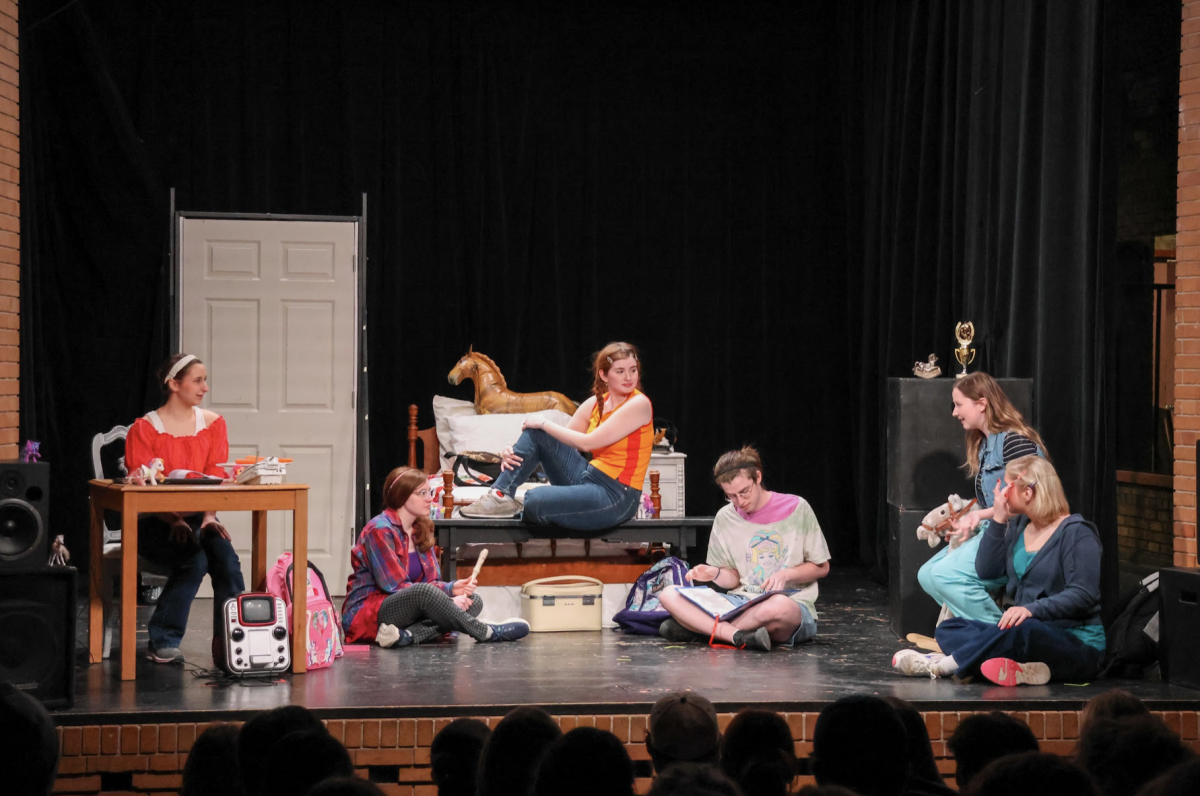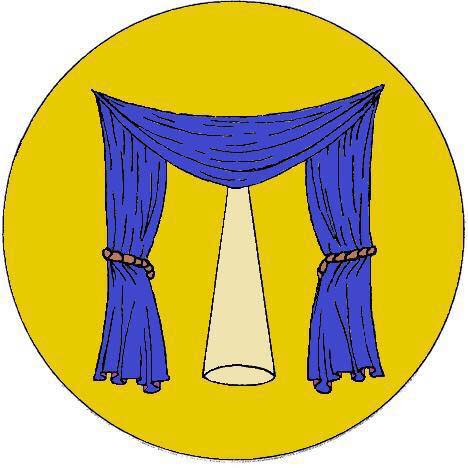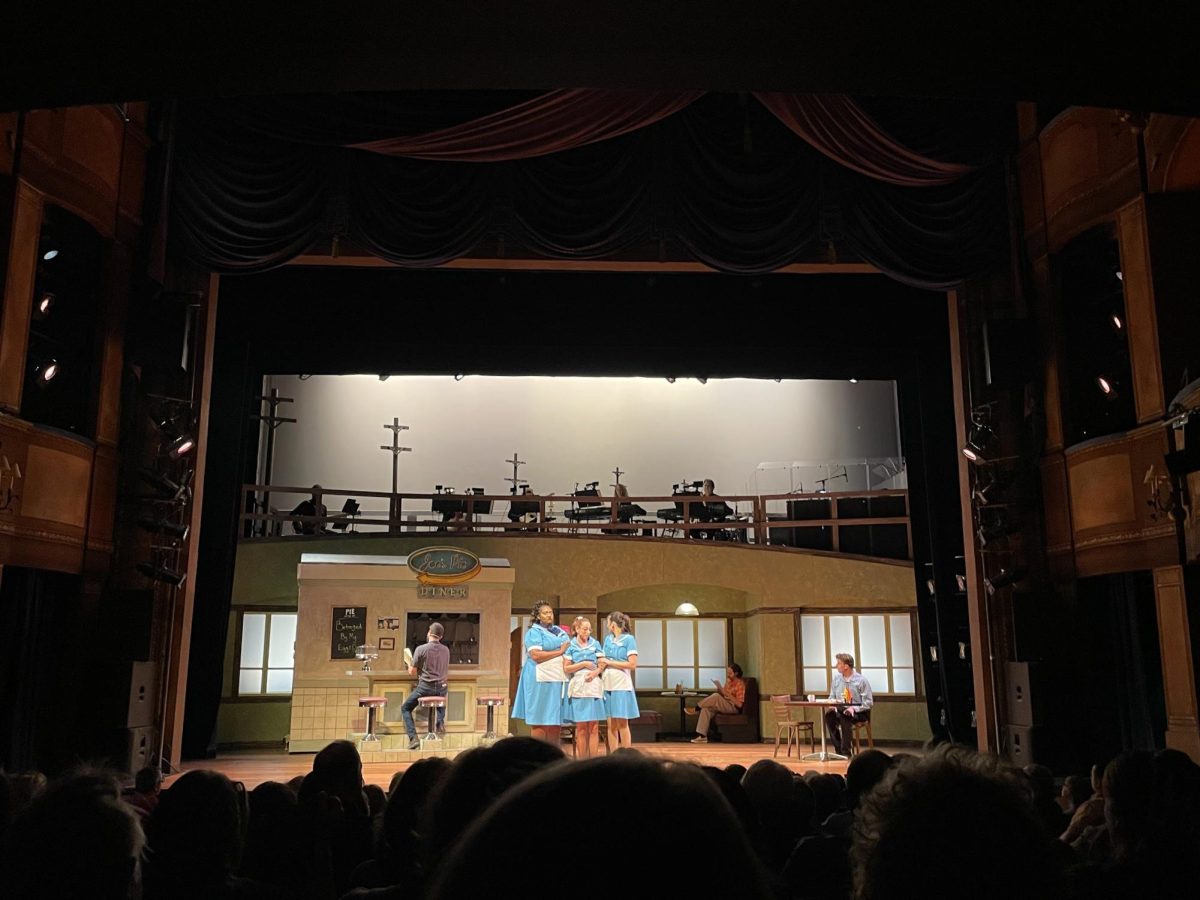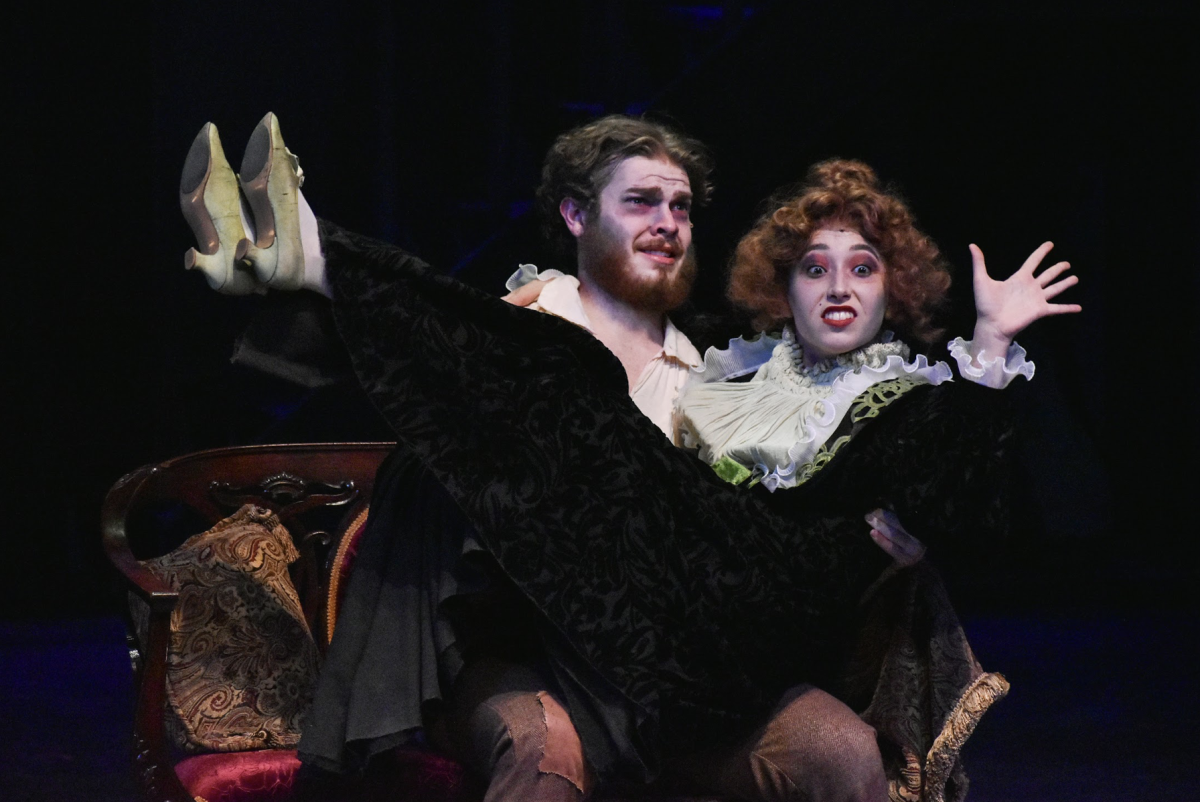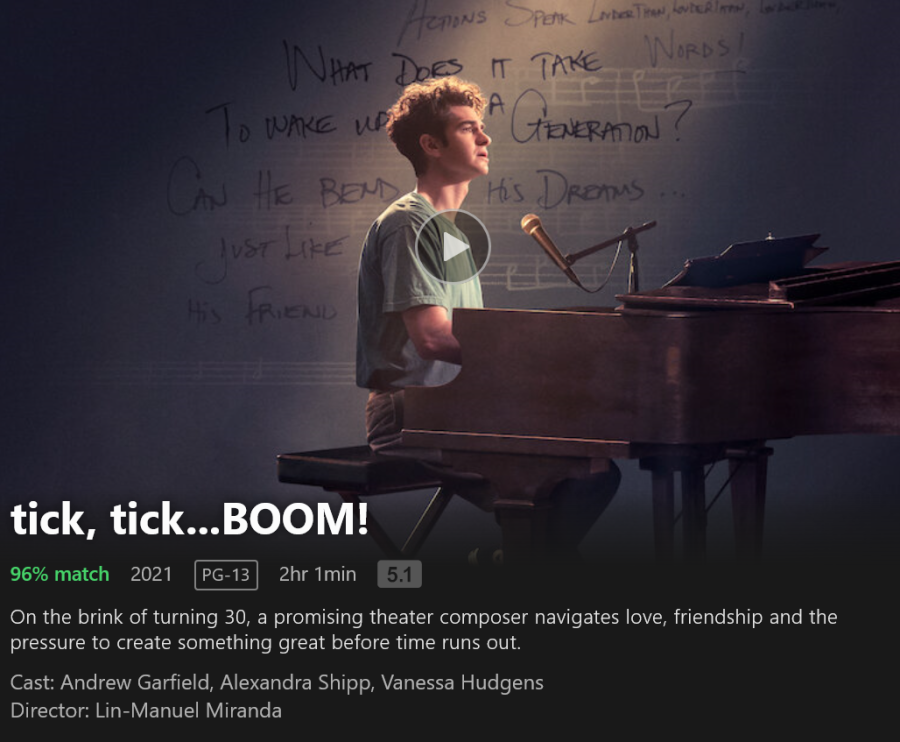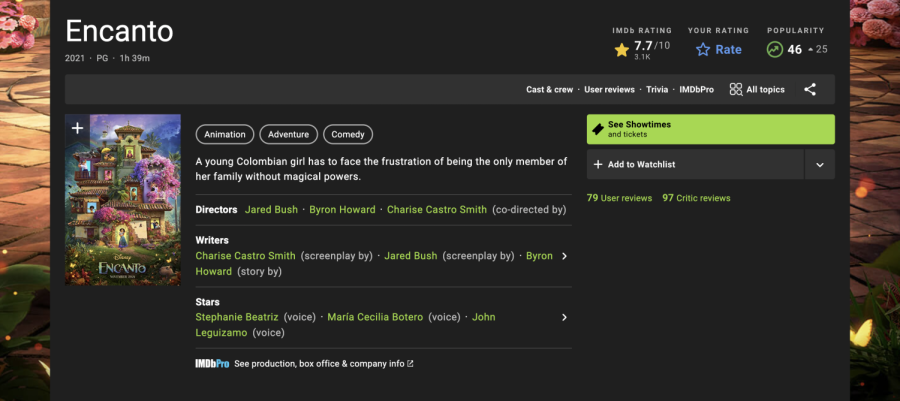Human connection and communication are the core of Marquette Theatre’s 48th annual season, “Expectations,” where characters’ strong beliefs of victory reflect real life.
The season began with a musical comedy, “The 25th Annual Putnam County Spelling Bee,” in October. On the horizon is a pair of shows: “The Wolves” and “From White Plains” in December, and in the spring “The Importance of Being Earnest” before wrapping up with “Detroit ’67,” a Voices Included for People of Color Theatre production.
Jamie Cheatham, head of Marquette’s theatre arts program, emphasizes the hard work that goes into these productions to make each show as truthful as possible.
“We rehearse for a span of seven weeks,” Cheatham says. “There is a lot of work outside of rehearsals in terms of designing and building the sets and costumes, which is extremely time-consuming.”
Cheatham makes sure Marquette actors are exposed to well–rounded seasons.
“We try to introduce students to a good variety of genres, each with unique challenges. This not only grows skills but allows for connections to be made with real life,” Cheatham says.
Despite the challenges that come with putting on a show, Cheatham describes it as a labor of love.
“We’re all pretty exhausted by the time a show opens. But performing is our outlet for our creative sensibilities and imaginations, and it is our duty to share these lessons to the audience,” Cheatham says.
Cheatham mentors Isabella Andress, senior in the College of Arts & Sciences, currently directing shows for Marquette’s Players Society.
Andress introduced the club’s current show, “The Amish Project,” where she is using her creative power as director to express lifelong values.
“It’s based off a real story about a shooting in Pennsylvania at an Amish school, and how the close-knit and faith-based community grew to forgive the man who did it,” Andress says. “We are learning that in unfathomably difficult circumstances, we should still show mercy and love.”
Andress aims to convey important messages to the audience when directing.
To Cheatham, it is not about the audience’s applause at the end of these shows, but the amount of growth from the cast, crew and audience.
“Theater is an art form that teaches us to empathize actively with characters who lead different lives or come from different worlds than us,” Cheatham says. “When a show comes together, it is magical.”
In “The 25th Annual Putnam County Spelling Bee,” Matthew Read, junior in the College of Arts & Sciences, portrayed 10-year-old William Barfee. Faced with putting himself in the shoes of a new character, Read prioritizes alone time.
“I’ve taken a lot of different courses on how to build character. It helps me grow personally when I can decide who a character is to me,” Read says.
Cheatham works make sure his shows accurately depict reality, creating a diverse platform to tell the stories of all people equally.
“At Marquette, we try to present shows that correlate to what is going on in the world. Each season, we try to include a show highlighting a social justice issue. This year that is, ‘From White Plains,’ which deals with LGBTQ+ bullying,” Cheatham says.
To prepare for the important task of communicating these messages, Read strives to communicate efficiently in his own life off-stage.
“In my personal life, I know myself better. I have learned to connect with people I’ve never met in the form of an imaginary and non-existent character,” Read says.
Read identifies as a storyteller, while Andress has discovered her place backstage due to her love for technology. Andress explains this connection helps to aid her stage fright.
“I grew to love the ability to create a mental image and have my thought process take life on stage,” Andress says.
Read acknowledges that everyone involved in Marquette Theatre, no matter the role, is tasked with expressing their own perspective.
“I love acting because each character has a different story, as do the actors, directors and audience. This is my fourth show at Marquette and each one has been so different,” Read says.
Andress learned the importance of empathy through Marquette Theatre, one of the most important lessons she has learned over the past four years.
“To put yourself in someone else’s shoes and carry that character and their lessons with you in your day-to-day life has a strong impact to me,” Andress says. “I think that is the best thing about modern theater.”
This story was written by Angelina Galullo. She can be reached at angelina.galullo@marquette.edu.



